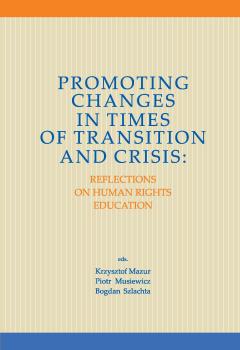Russia’s Human Rights Record. Case of Chechnya .......... 263
Streszczenie
The birth of the human rights is a birth of western civilization, when the individual freedom, freedom of speech and movement got introduced for the wider range of societies and from there derives the (natural) law which is entitled to defend those rights. Russia during its long historical tradition was always stuck in between two attitudes toward hu-man rights regime. At the one hand embracing universal human rights and on the other hand emphasizing cultural relativism and national particularism. The perfect example of this would be conflict in Chechnya and war crimes and human rights violations which Federal Government done toward autonomous region. Thus more than ten years passed after starting the second Chechen war but there is no reconciliation in the horizon. Moreo-ver region is a still “hot spot” and indeed this war became part of everyday reality. Conflict in Chechnya and especially the second war is known as the cruelest and an-tihuman military campaign Russia had after dissolution of Soviet Union. There more than 160 cases in European Court of Human Right indicating crimes and violations Russian government committed toward the citizens of Chechnya including: disappearance, extra judicial execution, indiscriminate bombing, ill treatment and many others. In this paper I will be criticizing Social Constructivist approach with Neorealist atti-tude. Thomas Risse, Stephen Ropp, and Kathryn Sikkink27 present a highly influential five-stage spiral model, outlining the stages and processes through which human rights norms become socialized into domestic settings. The model suggests that changes in the policies of violating governments are mainly driven by non state transnational actors. These actors form networks that apply normative pressures on governments, mainly through shaming and denunciation. At first, the pressures lead to empty rhetoric and some tactical conces-sions to the norms. However, with time, the moral power of the norms becomes bind-ing and governments get caught up in their own rhetoric. Universal human rights norms achieve prescriptive status, become internalized, and begin to guide behavior.Paper answers following questions: Why Second war in Chechnya poisoned Russia’s human rights record and affected countries international face and what was the role of human rights organizations in the process of preventing farther deterioration of situation?





